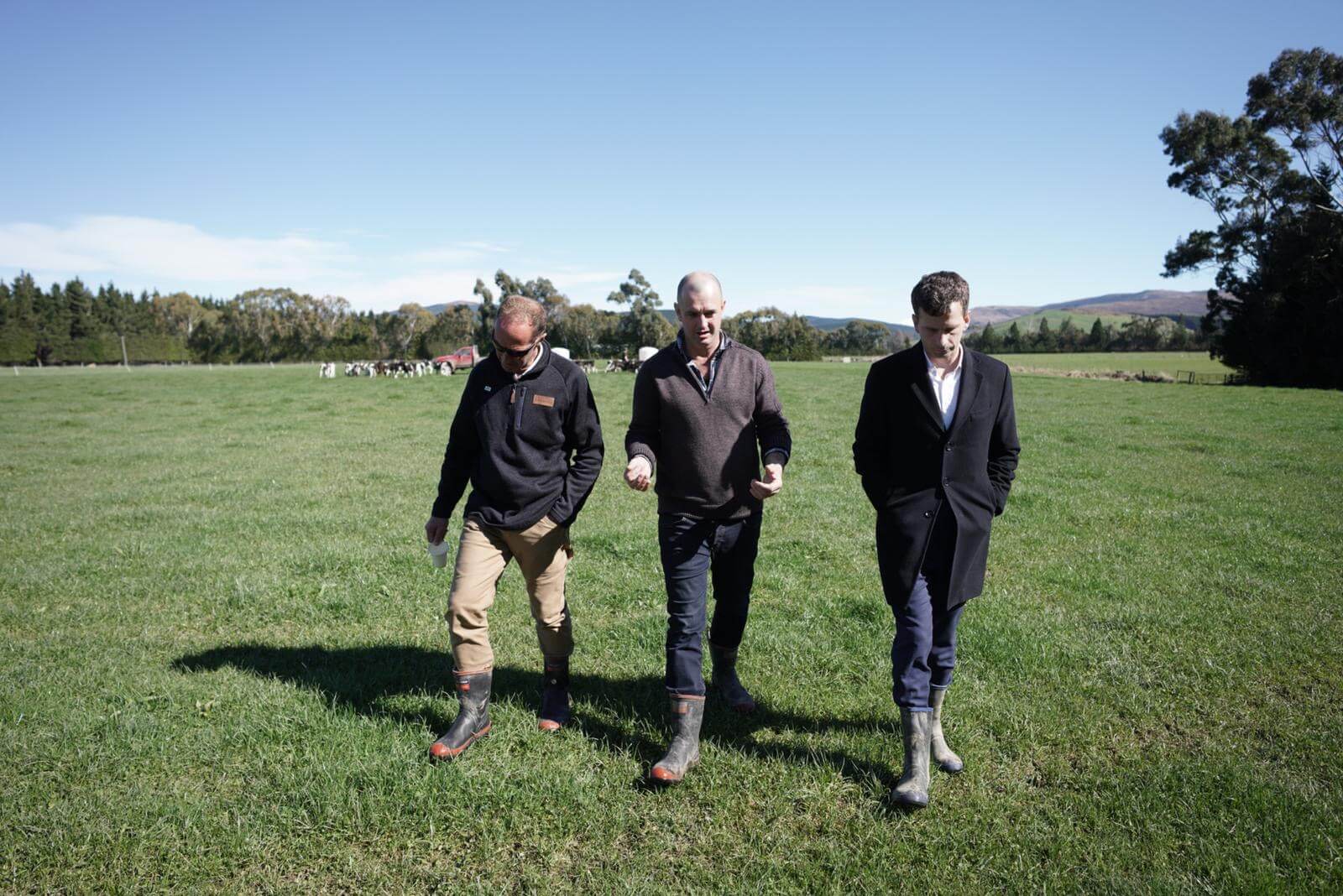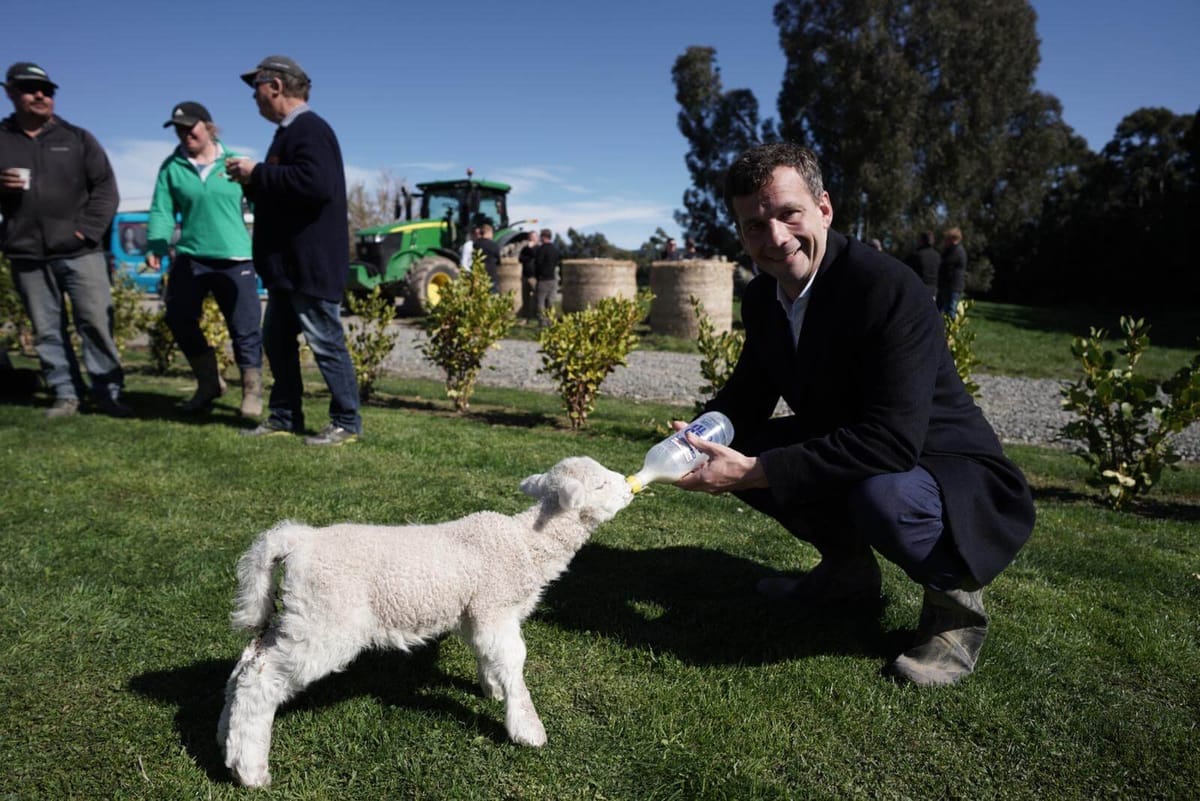ACT leader David Seymour was in Invercargill on Sunday evening along with ACT Rural spokesperson Mark Cameron and ACT’s firearms spokeswoman Nicole McKee.
All three spoke at a meeting on Sunday evening and released a number of policies including climate change, water, and forestry in Southland today (Monday 21st Sept).
See the release below.
“ACT is backing farmers to succeed with the release of our primary industries policy this morning,” says ACT Leader David Seymour and Rural Spokesperson Mark Cameron.
“We want to see the rural sector given the respect it deserves. Through Covid-19, the efforts of our farmers raised the level of respect rural New Zealanders get,” says Mr Seymour.
“The rural sector has been given a short reprieve from the campaign of demonisation. It’s time to put that change in rhetoric into action.”
“A Party Vote for ACT is a vote to see a more co-operative approach between government and the rural sector,” says Mr Cameron, a Ruawai dairy farmer and ACT’s Northland candidate.
“The environmental efforts of the rural sector should be acknowledged and valued before heavy-handed regulations are put in place.
“With the right approach, we can once again see the rural sector as an essential and valued part of the New Zealand economy.”
Climate change:
Repeal the Zero Carbon Act and Emissions Trading Scheme and introduce a no-nonsense climate change plan which ties our carbon price to the prices paid by our top five trading partners.
Advocate for more accurate measurement and management frameworks for methane emissions.
“ACT was the only party to vote against the Zero Carbon Act. It’s the most expensive legislation in our history and will significantly raise costs on households and businesses. The Act also gives massive power over the economy to the Climate Change Minister.
“New Zealand must play its part on climate change. But any response must be simple to administer, politically durable, and effective.
“If we are forced to make significantly deeper emissions cuts than our trading partners, we will impoverish ourselves and push economic activity to other countries.
“ACT will push for more accurate metrics for measuring methane and other short-lived gases. GWP100 treats all gases equally and overestimates the contribution of methane to rising temperatures. Leading climate scientists have developed GWP*, which more accurately measures the impact of methane. If used internationally, it could have a significant impact on New Zealand’s liabilities.”
Forestry:
Remove all subsidies for commercial forestry investment.
Change Overseas Investment Office rules so that the sale of all farmland to overseas purchasers is on a level playing field, whether being purchased for forestry or not.
“Our farmers are some of the most efficient food producers in the world. But the Government’s tree planting subsidy of up to $4,000 per hectare is unfairly tilting the playing field towards forestry.
“Subsidies have given large forestry investors an unfair advantage which is driving small farmers out. Farm sales have gone beyond marginal land, with productive farmland being sold off. The policy of large-scale afforestation is a threat to jobs, families and rural communities.
“We should be mitigating the impacts of climate change, but there must be a level playing field.”
Water:
Remove the requirement for mandatory three-metre setbacks across all low slope land in favour of customised solutions with a focus on measurable outcomes.
Allow regional councils and communities to set their own freshwater management limits. Limits and management interventions should be catchment-based, as opposed to being determined by a one-size-fits-all approach set in Wellington.
Insist on peer-reviewed scientific evidence and quality economic analysis of Essential Freshwater reforms.
“The Government’s freshwater reforms impose impractical measures on farmers, will cap a property’s ability to perform to its potential, increase debt levels, and lower future earning potential.

“For example, mandatory three-metre setbacks will take a significant amount of land out of production and represents the seizing of private property without compensation. A three-metre setback, in many cases, will be inappropriate.
“Landowners and councils need to be given the flexibility to create local solutions for local problems. Water issues should be determined at a local level. A one-size-fits-all approach created in Wellington is misguided.
“ACT will insist on peer-reviewed scientific evidence and quality economic analysis of the Essential Freshwater reforms and will push for common sense changes.”

